Find Your Perfect Business Degree
www.business-management-degree.net is an advertising-supported site. Featured or trusted partner programs and all school search, finder, or match results are for schools that compensate us. This compensation does not influence our school rankings, resource guides, or other editorially-independent information published on this site.
Did you know that there are more than a hundred national and international companies based in the State of New York? IBM, Deloitte, PepsiCo, JPMorgan Chase, PricewaterhouseCoopers, Citi, Verizon, ABM Industries, Pfizer, and Standard Chartered USA are just a few of these world-famous companies. The good news: These companies will require the best people with degrees in business administration and management!
Graduates of the best public business schools are sought-after by employers because of their excellent core knowledge across a vast range of subjects. These include
- finance,
- accounting,
- information technology,
- logistics,
- project management,
- human resources,
- and organizational behavior.
These subjects are broad and flexible enough for career opportunities to present themselves after graduation. Employers also appreciate these graduates for their ability to bring new information and innovations into old systems, a must for companies to thrive in the fast-changing 21st century New Economy.
But not everybody can succeed in a challenging business administration and management degree program! Students must be proficient in mathematics and be able to express themselves, communicate their ideas, and think critically.
This is because the curriculum includes math-based subjects like economics and quantitative analysis and subjects that demand critical thinking and communication, such as finance, human resources, and accounting.
Indeed, the best business professionals possess a mix of soft and hard skills that allow them to adjust to the changing business environments in their respective companies and industries.
These skills include:
- Effective conflict resolution and mitigation
- Proficient written and oral communication, including communicating complex subjects
- Ability to work well with others and with minimum supervision, as needed
- Address issues as they arise
- Technical skills like business analysis and preparation of financial statements
- Analytical skills and critical thinking skills
- Leadership skills for a diverse environment
Of course, these hard and soft skills should be developed in the classroom and other venues, such as in research projects, community involvement, and entrepreneurial initiatives. But it doesn’t hurt to learn about them from your professors and employers during your internship! You will find that theoretical knowledge’s practical applications become even more profound because of your formal education.
And there are several different levels of formal education in business administration and management, too. Keep in mind that these should be viewed as a ladder – the associate degree is the first step in the ladder, and the doctoral degree is the terminal step. But you can skip the associate degree level if you have the resources for a bachelor’s degree.
- An associate degree program typically requires completion of 60 credits and lasts for two years. Students study business law, marketing, and human resources, among other core competencies. This is your first step toward a bachelor’s degree but check first about the credit transfer policy.
- A bachelor’s degree program provides students with a broader and deeper understanding of core competencies and develops their hard and soft skills in preparation for a business career. The courses consist of introductory and upper-level accounting, finance, human resources, business analytics, financial management, and organizational behavior, to name a few. Most programs also require a senior thesis and an internship with an outside entity.
- A master’s degree program has experienced faculty who also have proven success in the business world and, as such, can provide more experiential learning for students. In turn, students can expand their knowledge and business skills, particularly in operational management, international business, and change management. Students have the chance to showcase their capabilities, improve their data-driven decision-making skills, and increase their risk analysis and management skills.
- A doctoral degree program is suitable for business professionals seeking a career in consulting and teaching. Students have tremendous opportunities to become thought leaders, contribute to the foundational knowledge of business through research, and initiate change in the business world.
Upon graduation, there are numerous careers and jobs that degree holders can choose from! In New York, these opportunities range from chief executive officers, chief operations officers, and chief financial officers to financial managers, food service managers, and training and development managers.
Other suitable careers include:
- Actuarial analyst
- Arbitrator
- Business adviser or analyst
- Business development manager
- Corporate investment banker
- Chartered management accountant
- Data analyst or scientist
- Forensic accountant
- Insurance underwriter
- Project manager
- Risk manager
- Stockbroker
- Supply chain manager
- External auditor
- Human resources officer
- Marketing executive
- Mortgage adviser
- Retail manager
- Sales executive
But first, what are the best public schools in New York where you can earn a world-class education in business administration and management? Here are five of these schools that we highly recommend for their top-notch curriculum, faculty, and facilities!
Note: The acceptance rate is the school’s overall admission rate, while the graduation rate is its four-year rate. The admission requirements are for freshmen applicants for the undergraduate program. Please check the link at the end for more information about the master’s and doctoral degree programs admission requirements.
SUNY University at Buffalo
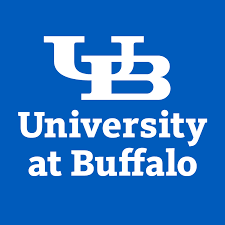
Prominent Program Features:
The State University of New York (SUNY) at Buffalo, also known as the University at Buffalo (UB), was founded in 1846. It was merged with the SUNY system in 1962. It’s the largest public university in the state with 13 distinct colleges, including the School of Management.
The School of Management offers a Bachelor of Science in Business Administration (BSBA) with several concentrations, such as:
- data analytics,
- financial analysis,
- human resources management.
- management information systems concentration
- marketing concentration
- and operations and supply chain management
While students aren’t required to follow a specific concentration, every student must complete a minimum of three upper-level management electives for a general management degree. The electives chosen have to be separate from the core management requirements.
Note: When approved via the IEL Program, a three-credit hours internship will be counted as one elective in case of non-pursuance of a specific concentration. Every concentration has its credit hours and coursework requirements, so students are well-advised to consult with their academic advisors.
The data analytics concentration consists of courses that equip students with in-demand skills, particularly the ability to analyze, manipulate, and make conclusions from large data sets. These skills can be applied across several core business disciplines, and, thus, graduates find work more easily. The concentration must be combined with another primary concentration: human resources management, marketing, or management information systems.
The financial analysis concentration prepares students for careers in leadership, quantitative finance, and financial decision-making. Students combine classroom learning and real-world internships to develop their knowledge and skills. Take note that students must meet rigorous academic performance standards in their freshman and sophomore years before they can be admitted to the School of Management’s upper-division courses.
The human resources management concentration is suitable for students with supervisory and management aspirations or students with an abiding interest in the human resource field. Students learn the tools and techniques to attract, train, and develop a competitive and competent workforce for all organizations.
The management information systems concentration consists of six upper-level courses covering managerial and technical topics. Students learn core business principles and practices and the application of technologies for value creation in business, programming languages, systems design, analysis, and management of IT projects.
The marketing concentration enables students to acquire the theoretical and practical background for designing, analyzing, and managing marketing plans and strategies. Graduates typically find positions in marketing management, marketing research, and sales.
The operations and supply chain management specialization provides students with valuable skillsets for employment in various industries. These include retail and logistical services, government, healthcare organizations, and manufacturing companies.
UB’s School of Management has 4+1 programs that seamlessly combine a bachelor’s degree and a master’s degree within five years. These are touted as cost-efficient and time-efficient programs since these cut the study time by a year. (Master’s programs take about two years to complete)
Campus location: Buffalo, New York
Accreditation: Association to Advance Collegiate Schools of Business (AACSB) International
Acceptance and Graduation Rates:
Acceptance rate: 70.1%
Graduation rate: 73.2%
Admission Requirements:
Freshman applications can be done in one of three ways: (Choose one only)
- The Coalition Application
- The Common Application
- SUNY Application (Be sure to complete the SUNY Supplemental Application if you choose this route)
Check that your application explicitly states University at Buffalo to ensure that it goes to the right school. It’s either “Buffalo, University at” on the SUNY Application or “University at Buffalo (SUNY)” on the Common Application.
The admission requirements include:
- Official high school transcript
- Letter/s of recommendation from a teacher, school counselor, employer, or community member (The maximum number recommended is three)
- ACT/SAT scores
Incoming first-year students can also apply for direct admission to the School of Management by selecting the UB application’s business administration box. The university encourages incoming first-year students to apply for early admission and to complete pre-calculus requirements in this case.
The application comes with a non-refundable fee regardless of the option chosen. But veterans and spouses of veterans can have it waived.
Program Options:
Undergraduate:
BSBA Concentrations in:
- Data Analytics
- Financial Analysis
- Human Resources Management
- International Business
- Management Information Systems
- Marketing
- Operations and Supply Chain Management
Bachelor of Science and Master of Science:
- BSBA with Financial Analysis Concentration/MS Finance
- BSBA with Management Information Systems Concentration/MS in Management Information Systems
Graduate:
- Full-time MBA
- Executive MBA
- Professional MBA (Part-time)
- Master of Science Concentrations in:
- Accounting
- Finance
- Management Information Systems
- Operations and Supply Chain Management
Post Graduate:
Ph.D. in Management Concentrations in:
- Accounting
- Finance
- Management Science and Systems
- Marketing
- Operations Management and Strategy
- Organization and Human Resources
The Final Result:
UB’s School of Management is known for delivering a high-quality of education, translating to an excellent investment return for its graduates. The school’s curriculum emphasizes real-world lessons and learning, the development of soft and hard skills, and positive leadership resulting in constructive change.
Graduates are then expected to become thought leaders in the academe, business, industry, and other human living areas. Many of its alumni have made their distinctive marks, such as Abbe Raven (Chairman of A+E Networks), Harvey Weinstein (founder of The Weinstein Company and Miramax), Brad Grey (CEO of Paramount Pictures), and Bob Swan (CEO of Intel).
CUNY Baruch College
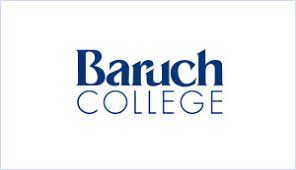
Prominent Program Features:
The City University of New York is the largest urban university in the country and New York City’s public university system. Among its constituent colleges is the Bernard M. Baruch College, or simply Baruch College, which offers undergraduate, graduate, and post-graduate business administration and management degree programs through its Zicklin School of Business.
Established in 1919, Zicklin takes pride in its long history of superior business education that sets the trend and changes with the times, producing thought leaders, business experts, and active researchers.
From its location in Manhattan’s international business markets, it’s a business school with a finger on the pulse of the industry, too. It’s recognized for its affordable, relevant, and rigorous business education and its alumni benefit from gainful employment, leadership positions, and positive impact.
Zicklin offers a world-class Bachelor of Business Administration (BBA) degree program with three concentrations:
- Entrepreneurship,
- Human Resources Management,
- and Operations Management.
Each concentration has its specific required coursework, including core courses and electives.
The BBA Entrepreneurship degree program isn’t just for students who want to establish their businesses. Since students learn to become self-starters, they become valuable assets to existing businesses looking for self-motivated individuals.
Their core coursework includes courses in developing an entrepreneurial mindset, designing for innovation, and creating entrepreneurial opportunities. Students must also take three electives, such as family enterprise dynamics, new venture management, and social entrepreneurship, including any 3000-level or 4000-level course from the Weismann, Marxe, and Zicklin schools.
The BBA Human Resource Management degree program prepares students to become generalists or specialists in the human resource field and assume managerial positions in the private and public sectors. Students first gain a fundamental education in the liberal arts and sciences before launching a comprehensive business education. The curriculum emphasized the combination of theoretical knowledge and applied training that will result in employment-ready, competitive graduates.
Students must take a wide range of core courses and electives, too. The core courses include Management and Society, Management: A Behavioral Approach, and Human Resource Management, as well as electives like Organizational Behavior: A Micro Perspective, Employee Development and Training, and Conflict Management Procedures.
The BBA in Operations Management degree program develops the student’s ability to deal with the human and organizational aspects of operations. Students also learn to think analytically, create innovative solutions, approach problems with a critical mind, and develop their quantitative skills for resource allocation and use.
The core courses include Management and Society, Management: A Behavioral Approach, and Business Decision Models. The integrative courses are Cases in Operations Management and Business Process Analysis. Students must take an additional business course as an elective.
Campus location: New York City, New York
Accreditation: Association to Advance Collegiate Schools of Business International (AACSB)
Acceptance and Graduation Rates:
Acceptance rate: 43%
Graduation rate: 44%
Admission Requirements:
Incoming first-year students must first be admitted to Baruch College and meet eligibility requirements before admission into Zicklin. Be sure to state your intended major on your CUNYfirst account for this purpose.
The admission requirements include:
- Official high school transcripts (In the case of a high school equivalency diploma from New York, you must send a copy of your diploma and scores. Diplomas from any non-public online or correspondence high school aren’t accepted for admission in any CUNY college.)
- Supporting materials, if required by the college
- Essays using one of the recommended topics. The typical topics include personal interests, background, and aspirations.
Admission into Zicklin requires completion or fulfillment of the following eligibility requirements:
- COM 101 Speech Communication and ENG 2150 Writing II
- Eight pre-business courses including ACC 2101 Principles of Accounting, ECO 1001 Microeconomics and LAW 1101 Fundamentals of Business Law, with at least a 2.25 GPA
- 45 credits at Baruch College with at least a 2.25 overall GPA
Program Options:
Undergraduate:
- Entrepreneurship
- Human Resource Management
- Operations Management
BBA with majors in:
Graduate:
- Full-time MBA
- Evening MBA
- Executive MBA
- Executive MBA in Healthcare Administration
- MBA in Business Consulting Capstone
- Joint Juris Doctor (JD)/MBA Program (A partnership with Brooklyn Law School and New York Law School)
Post-Graduate:
Ph.D. in Management
The Final Result:
According to Zicklin, more than 1,000 companies post internships and full-time positions for their students and graduates. These companies reflect the diversity with which the business school takes pride – these employers include small businesses and Fortune 500 corporations. The MBA and MS graduates are particularly sought-after by employers – 81% of graduates of the 2018-2019 batch are either employed or received offers.

SUNY Binghamton University
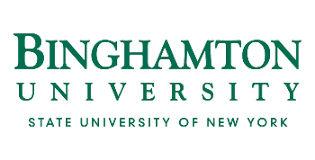
Prominent Program Features:
The State University of New York at Binghamton, also called Binghamton University, is a constituent university of the SUNY system. While it’s a public university, it takes pride in its academic culture characterized by rigorous curricula, a collaborative environment, and bold innovations. Truly, students enjoy the best of private education in a public university, from the reasonable cost of attendance to an active social life to break academics’ rigor.
The School of Management offers business administration degree programs, and the school itself has been ranked #14 in the 25 Best Colleges for Earning a Degree (Forbes).
Students get a solid liberal arts education, a sound foundation in management principles and practices, and a robust awareness of the environmental, legal, and societal factors involved in organizational decision-making processes. The result is a well-rounded business education that opens up doors of employment and entrepreneurial opportunities in diverse industries, from manufacturing to consulting.
Students can choose from eight concentrations or specializations for their Bachelor of Science in Business Administration (BSBA) degree. Out of the eight, five of the most popular are listed below.
The Business Analytics concentration program prepares students for the real-world management of data and models and their analysis and applications to business decisions. Graduates typically work in the supply chain, marketing, and operations jobs across diverse industries.
The required coursework includes Business Intelligence and Analytics, Essentials of Programming, and Spreadsheet Modelling and Decision-making. The electives, which strengthen the core competencies, include Customer Analytics, Data-driven Marketing, and Introduction to Data Science.
Students in the Leadership and Consulting Concentration enhance their ability to lead people, manage organizations, improve their hard and soft skills in professional relationships, and acquire hands-on practice. This is achieved through dynamic classroom discussions, engaging case simulations, and challenging speaker engagements and consulting projects. There are courses designed to refine students’ writing, presentation, and public speaking skills.
During their Strategic Leadership course, students even work with local non-profit organizations as consultants. Indeed, even before students get their diplomas, they already have sound experience in leadership and consulting!
The Entrepreneurship concentration program enables students to create and present viable business plans, establish their businesses, and become valuable self-motivated employees. Students must present their business plans during a competition with known entrepreneurs, venture capitalists, and local business owners as judges; most of the judges are Binghamton University alumni, too, so they know what it feels like to be in these competitions.
The required J-Core courses for the Entrepreneurship concentration are the same as the other concentrations with the addition of Entrepreneurship, a core course, and three electives. The choices for electives include Strategic Leadership, E-Business, Social Media Marketing, and Marketing Research.
Students in the Finance concentration program build a robust foundation in investments, financial institutions, and financial investments in students. Such knowledge is complemented by a broad understanding of corporate finance, financial management, and derivative assets through a combination of classroom discussions and real-world cases. The quantitative analysis and qualitative skills gained are valuable in many leadership positions, too.
The Management Information Systems concentration program is a popular one because of the high demand for IT professionals in management positions. Nearly every organization in the 21st century requires these professionals due to their expert knowledge in the design, application, and management of management information systems.
Students learn about programming languages, database management systems, advanced spreadsheets, cloud services, and online security. Their education also includes awareness of emerging issues and trends in information technology and, thus, to become better managers.
While the first two years in business school cover introductory topics, the last two years cover advanced subjects to prepare students for employment and entrepreneurship challenges.
Binghamton University also offers accelerated/4+1 degree programs wherein students can earn their bachelor’s and master’s degrees in five years.
Campus location: Vestal, New York
Accreditation:
- Middle States Association of Colleges and Schools for the University in general
- American Assembly of Collegiate Schools of Business (AACSB) for the School of Management
Acceptance and Graduation Rates:
Acceptance rate: 41%
Graduation rate: 71%
Admission Requirements:
Prospective students should choose one method when applying for admission:
- Common Application
- SUNY Application
- Coalition Application
There’s an application fee, but eligible students can apply for a waiver. Eligibility is mainly determined by demonstrated economic need.
The university sends a Reference Number and User ID for prospective students starting in early October. When you receive the information, you must activate your password to complete the application process. Note that the Admissions Office uses email as its primary communication method and, as such, applicants must ensure that they give valid email addresses.
Admission requirements for incoming freshmen/high school graduates include:
- Official high school transcript, which can be submitted by mail or electronically
- Completed test-optional form
- ACT/SAT score
- Letter of Recommendation from a counselor or instructor
Program Options:
BSBA Concentrations in:
- Business Analytics
- Entrepreneurship
- Finance
- Leadership and Consulting
- Management Information Systems
- Marketing
- Quantitative Finance
- Supply Chain Management
4+1 Degree Programs
- BSBA + MBA in Business Administration
- BS Accounting + MBA in Business Administration
- BSBA + MBA in Business Administration
- Harpur College of Arts and Sciences bachelor’s degree + MBA in Business Administration
- Thomas J. Watson School of Engineering and Applied Science bachelor’s degree + MBA in Business Administration
The Final Result:
The School of Management’s job placement and starting salary for graduates are above the national average. Many graduates get several offers after their graduation. Their job offers come from top employers like PwC, Deloitte, American Express, Goldman Sachs, Morgan Stanley, and JPMorgan.
Binghamton graduates also attend prestigious universities for their advanced degrees. These universities include Cornell, Harvard, Yale, and Stanford.

SUNY The University at Albany
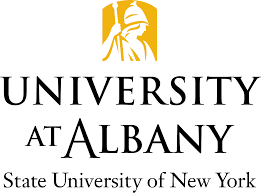
Prominent Program Features:
The State University of New York at Albany, also known as the University at Albany or simply UAlbany, prepares its students to make a difference, lead change, and present new ideas. Such preparation doesn’t come only from books but also experiences and exposure – and that’s exactly what students will get during their time at university.
UAlbany guarantees that students will find the resources, experiences, and support services vital for their success as students and professionals. Faculty members work closely with students in their academics and research activities and impart their expertise as published authors and industry thought leaders. Students also interact with people from across the United States and the world and, in the process, enrich their college experience in unexpected ways.
The university’s world-class business education results from a tradition of academic excellence, a focused thrust on theoretical and applied research, and effective engagement with industries, alumni, and academic communities. Students are also provided with a competitive education and training through internships with corporate partners in the State of New York.
UAlbany has state-of-the-art learning facilities, too, which provide students with an exceptional environment. These include learning-conducive classrooms, a trading room with contemporary Bloomberg terminals, accounting, digital forensic laboratories, and breakout rooms. Students can also tap into its dedicated career services office for their research projects and collaborative initiatives.
The Bachelor’s in Business Administration (BBA) program is designed to increase every student’s understanding of the fundamental principles and practices in business and practical skills for their chosen area of concentration. The combination of broad understanding and intensive practical training results in employable skills for diverse industries after graduation.
The BBA with a specialization in Information Systems and Business Analytics program equips students with the abilities vital for predictive analytics, business and accounting applications, and domain-specific programming languages. Students learn the tools for using information technology and data management systems in business problem-solving and decision-making processes.
Students in the BBA with a Marketing concentration acquire the skills to create marketing plans, understand and manage consumer behavior, and direct marketing strategy. The courses are geared toward identifying potential customers, the development of advertising and branding campaigns, and the introduction of new products and services. These encompass both traditional and digital media, such as social media.
The BBA with the Entrepreneurship concentration program enables students to learn business management hands-on by starting their own companies while still in college. This is made possible through the Blackstone LaunchPad, a program where students are provided with mentorship services and privileged access to startup resources. Students can connect with faculty, alumni, and business leaders for capital and other resources, too.
UAlbany encourages its students to combine two concentrations, too, if they think it’s in their best interest. Examples include Entrepreneurship and Finance, Entrepreneurship and Information Systems and Business Analytics, and Entrepreneurship and Marketing.
Students in the BBA with a Management concentration program learn team management, recruitment and motivation of employees, and measurement of team and individual performance. They can also choose from several combined concentrations that will match their respective interests in marketing, finance, or business analytics.
All students will gain practical experience in their area of concentration through internship opportunities. Most students are required to complete an internship.
UAlbany also has a Financial Analyst Honors Program for students pursuing a financial analyst career. Only highly motivated students with at least a 3.5 GPA will be admitted into the program and, thus, enjoy the privileges that come with it. These include smaller class seminars, individual mentorship, and special activities like a financial analysis boot camp combined with rigorous coursework.
Campus location:
- Uptown Campus in Albany and Guilderland, New York
- Downtown Campus in Albany, New York
- Health Sciences Campus – City of Rensselaer, New York
Accreditation: Association to Advance Collegiate Schools of Business (AACSB)
Acceptance and Graduation Rates:
Acceptance rate: 54%
Graduation rate: 56%
Admission Requirements:
Incoming freshmen can apply for admission in one of two ways: (Choose one only)
- Common Application
- SUNY Application
The required documents include:
- Official high school transcript or its equivalent
- Official SAT/ACT scores
- A personal essay, a minimum of 250 words on the application form chosen
- Letter of recommendation from a teacher or counselor
UAlbany collects a non-refundable application fee, which should be submitted along with the application. Eligible students can request a fee waiver.
Through its School of Management, the university also accepts applications for direct admission into the business administration degree program. However, only high-achieving students with demonstrated academic excellence are granted this privilege. Students enrolled through direct admission become members of the Ernst & Young World of Business, a living and learning community where students participate in learning opportunities.
Program Options:
BS in Business Administration with concentrations in:
- Financial Analyst Honors Program
- Information Systems and Business Analytics
- Marketing
- Entrepreneurship
- Management
- Finance
Graduate:
- MBA / Juris Doctor
- MBA Full-Time MBA
- MBA Part-Time Evening MBA
- MBA Part-Time Weekend MBA
The Final Result:
Graduates can find jobs based on their high-quality education and training, but they also have more doors opened thanks to the university’s strong ties with its alumni, recruiters, and the business community. Recent alumni surveys show that 80% of UAlbany graduates find gainful employment within five months after degree completion, and most of them report job satisfaction.

SUNY College at Geneseo
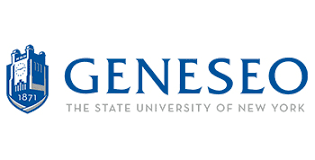
Prominent Program Features:
The State University of New York College at Geneseo, of Geneseo, is recognized as among the top SUNY schools partly because of its high graduation and retention rates.
It’s also known for its academic excellence, thanks to its full-time faculty’s expertise, of which nearly 90% possess terminal degrees. It’s home to a Phi Beta Kappa chapter, which means it’s only one of 286 four-year colleges with the country’s most prestigious honor society on its campus.
The Geneseo School of Business takes pride in its academic excellence record, too, and its long-running ability to attract top students into its degree programs. This is evident in the number of notable students, faculty, and alumni produced over the years.
The school offers three majors – Business Administration, Economics, and Accounting – in addition to five minors (Data Analytics, Business Studies, Finance, Management, Economics, and Marketing).
The Bachelor of Science in Business Administration or BSBA degree program doesn’t have concentrations. However, it’s a popular program because of its emphasis on a liberal arts education combined with a robust education in diverse core business competencies. These include economics, accounting, management, marketing, and international finance, which are learned and mastered through classroom discussions, group presentations, and case analyses.
Students develop their analytical, quantitative, and communication skills during these activities and, thus, become prepared for business challenges. Their hard-earned knowledge and skills in the functional areas of business also make them high-performing employees.
The total required credits for degree completion is 58, including 30-46 general education credits. The courses include financial accounting, managerial accounting, microeconomics, macroeconomics, probability, applied statistics, and business law.
The Geneseo School of Business also offers 4+1 MBA Programs, which waive certain MBA introductory courses resulting in just five years of completion for both bachelor’s and master’s degrees. You must apply by your senior year and supporting documents, including recommendation letters and GMAT scores.
There’s also the Business Excellence Program, which provides students with access to special activities designed to broaden their college experience. These activities include exclusive field trips to prospective employers, involvement in competitions like the Fed Challenge, mentoring services, and funding projects.
Campus Location: Geneseo, New York
Accreditation: Association to Advance Collegiate Schools of Business (AACSB)
Acceptance and Graduation Rates:
Acceptance rate: 65%
Graduation rate: 72%
Admission Requirements:
The admissions process is as follows:
- Complete the application by choosing either Common Application or SUNY Application (The latter comes with the Geneseo SUNY Supplement)
- Send your official high school transcript in paper or electronic form to the Office of Admissions.
- Send a completed copy of the optional Parent Statement, which must be filled by your parent or guardian.
Submission of ACT/SAT scores is optional.
Program Options:
Undergraduate:
- BS Business Administration
Undergraduate + Graduate Programs with the following partner universities:
- Alfred University
- SUNY Binghamton (Fast-track MBA with concentrations in Finance, Management Information Systems, Marketing Leadership/Consulting, and Supply Chain Management)
- Clarkson University
- Ithaca College
- RIT Saunders College of Business
- Union College
The Final Result:
For 2015, 48% of graduates found full-time and part-time work, while 40% either applied or were accepted into graduate schools and other educational programs. We can surmise that the succeeding classes also enjoyed the same success.

Generally speaking, a BA degree focuses on the humanities and reflects a liberal arts education emphasizing literature, arts, philosophy, social sciences, and foreign language study. On the other hand, a BS degree emphasizes math, science, and technology in the curriculum.
Keep in mind that a BA degree isn’t better than a BS degree and vice versa! You must look at your career goals and personal interests when deciding which route you will take in college. You may also look at the curriculum content and overall quality of education before making your choice.
The Business Analytics concentration isn’t commonly known yet, but demand for its graduates is rising and rightly so. Business analytics professionals can perform advanced data analysis vital to solving business problems and getting data-driven insights. They are highly valued in diverse industries, including public administration, healthcare, retail, manufacturing, mobile services, service industries, and consulting services.
The best news: The current supply of business analytics professionals is significantly less than the demand! Experts estimate a 50% to 60% gap between supply and demand.
Yes, of course! But it must also be emphasized that a degree in entrepreneurship isn’t necessary for business success, as evidenced by the likes of Bill Gates and Steve Jobs. But it’s a degree that will strengthen your understanding of the risks and rewards of establishing your own business, increase your knowledge and skills to overcome issues and become an inspiration to others as a successful entrepreneur.
